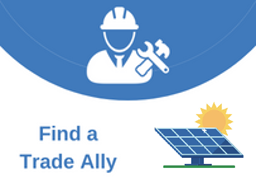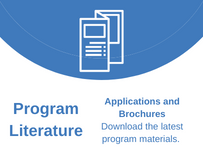How to Participate
Applications are now available for the FY 2015 Sustainable Biopower Competitive Solicitation, which is open from October 23, 2014 through December 22, 2014 at 5 p.m.
Getting Started
If you have not yet chosen an installer, the Trade Ally Database includes a list of renewable energy installers that have completed at least three projects within the NJCEP category they are listed, (e.g. solar, wind, biopower, etc.). It is recommended that customers meet with at least three installers to discuss system sizing, system placement, and financing options before choosing an installer.
Your installer will guide you through the participation process, which is divided into six steps:
- Determining your eligibility
- Submitting your application
- Requesting your state inspection
- Passing your state inspection
- Receiving your New Jersey certification number
- Earning and trading your SRECs and RECs
1. Determining your eligibility
To be eligible for a rebate, the wind (currently on temporary hold) or sustainable biopower project must be installed in New Jersey and the site host contact must contribute to the Societal Benefits Charge (SBC), a small payment made through the utility bill.
Remember, only sustainable biopower projects are eligible for rebates; there is no longer a rebate available for solar projects.
Your installer will work with you to determine the system size and to develop a financial structure that works for you. The annual expected electricity production of the installed system cannot exceed the annual historical electricity usage of the utility meter that connects to it. Participants can submit one application for each utility meter that will connect to a renewable energy system.
On-site load at least equal to project generation, must exist before a net-metered system may be energized or final program approval is issued. At the time of interconnection, the utility will require the existence of sufficient load to justify the capacity installed.
If you have questions regarding eligibility, contact us at 866-NJSMART (866-657-6278) or e-mail njreinfo@njcleanenergy.com.
2. Submitting your application
Once you and your installer have determined that you are eligible, you must complete and submit an REIP Application Packet. A complete list of required documents is defined in the Application Checklist for the appropriate renewable energy technology.
The Electric Distribution Companies (EDC) will be approving interconnection based upon the net metering and interconnection rules (N.J.A.C. Title 14-Public Utilities, Chapter 8 - Renewable Energy and Energy Efficiency and Subchapter 4-Net Metering and Interconnection Standards for Class I Renewable Energy Systems). Project owners are encouraged to apply for interconnection prior to submitting a REIP application to ensure that the system size proposed will be interconnected by the EDC.
Once the application packet is accepted, the applicant, installer, system owner and site host contact will receive an approval letter. The approval letter represents a commitment of program funds, contingent upon the timely and proper completion of the project. This letter will also certify that the project, as proposed, will be eligible to generate RECs in accordance with the State’s Renewable Portfolio Standard (RPS) rules. If sufficient program funds are not available, the application will be returned.
Applicants must receive a REIP rebate approval letter prior to completing their local inspection, or they will jeopardize their rebate.
Once approved, REIP applicants will have 18 months from the date of the approval letter to satisfy all program requirements and submit the Final As Built Packet to request a state inspection.
3. Request your state inspection
Once the system is installed, has passed local electric code inspection, and has been interconnected by the local utility, applicants must submit a complete Final As-Built Packet as defined in the Final As-Built Checklist to schedule a program inspection or receive an inspection waiver letter (an option for REIP solar projects only).
The Final As-Built Packet must be received prior to project expiration date. If your system will not be completed prior to the expiration date, you may be able to apply for an extension. Review the REIP project extension policy to see if you are eligible. The EDC notification is the only document that can be submitted after the expiration date. However, the project will not be scheduled for an inspection or receive an inspection waiver until a complete Final As-Built Packet has been received. Therefore, until the system receives a passed inspection or waiver letter, it will not receive a New Jersey certification number, which is needed to generate (S)RECs.
All REIP projects must have a revenue grade kilowatt-hour (kWh) production meter that has been certified to the American National Standards Institute (ANSI) C12.1-2008 standards. See Metering Requirements
Projects participating in other programs, such as the EDC solar financing programs, may be subject to additional metering requirements.
Once the Final As-Built Packet is deemed complete, a random selection process determines if the installation will receive a waiver of inspection (an option for solar REIP projects only) or if it will be a part of the quality control (QC/on-site inspection) process. If a solar project’s inspection is waived, the applicant, installer, system owner, and site host contact will receive a letter within 2 -3 weeks of receipt of the complete Final As-Built Packet. All biopower and wind projects will receive an on-site program inspection.
If the installation will be part of the QC process, residential applicants will be called within one week to schedule an inspection. Since Installers are expected to be present for the inspection of non-residential projects, the Market Manager will e-mail the installer within one week to schedule the inspection.
On-site inspections for PSE&G Loan Program projects will be handled by PSE&G program inspectors.
Please wait three weeks after submitting the Final As-Built Packet for questions about scheduling an inspection. Questions about inspections may be submitted to njreinfo@njcleanenergy.com via e-mail only.
4. Passing your state inspection
Installers will be notified via e-mail of inspection results within two weeks after the project inspection. If the project passes inspection, the e-mail will include a passed inspection report.
If the project fails inspection, the e-mail will include a failed inspection report. The installer must correct the deficiencies or supply the missing information and request a program re-inspection. If a second inspection is required, a fee of $200 for each re-inspection will be deducted from the rebate payment.
After waiting two weeks following the inspection, questions regarding the results may be directed to the specific program inspector who inspected your installation.
5. Receiving your New Jersey certification number
A letter containing a New Jersey certification number will be mailed to the system owner once the project has received an inspection waiver letter or a passed inspection report, and once all requested paperwork has been submitted by the owner. This letter will be mailed 5-7 weeks from the date that the last of these items is satisfied, and will include instructions on how to register with the SREC Tracking System.
Please allow seven weeks before submitting questions regarding New Jersey certification numbers. Questions can be directed to 866-NJSMART or via e-mail to njreinfo@njcleanenergy.com.
6. Earning and trading SRECs and RECs
Once the renewable energy project is interconnected with the distribution system in New Jersey and is authorized to energize by the EDC, the system is able to produce electricity and is eligible to begin earning SRECs for solar systems and Class 1* RECs for wind and biopower systems. One (S)REC is earned each time a project generates 1,000 kWh of electricity. System owners report energy production to the SREC Tracking System, which determines the number of (S)RECs earned. (S)RECs are placed in the customer's electronic account and can then be offered for sale via the GATS bulletin board and transferred on the PJM-GATS SREC Tracking System to buyers.
The SREC Tracking System enables account holders to track solar energy production from their installations. SRECs are issued to account holders based on recorded production of the solar energy system. On May 1, 2012, the New Jersey Board of Public Utilities (BPU) re-adopted Chapter 8 rules with amendments that became effective on June 4, 2012. In re-adopting N.J.A.C. 14:8-2.9(c), the Board eliminated the use of production estimates for systems with a capacity of less than 10 kW. SRECs will be issued to systems based only upon readings obtained from a revenue-grade meter measuring the system output. See Metering Requirements.
The SREC Tracking System records the sale of SRECs from generators to purchasers, and is ultimately used by electric suppliers and providers to retire SRECs for New Jersey RPS compliance purposes.
These accounts are hosted by the Generation Attribute Tracking System (GATS) managed by PJM-Environmental Information Systems (PJM-EIS); which is the current SREC Administrator.
New owners of a renewable energy project with a New Jersey certification number can obtain and access SREC accounts.
In most cases, system owners will be responsible for establishing and monitoring their accounts, verifying generation inputs, and trading SRECs. In cases where system owners assign the rights to SRECs to a third party, such as their installer or a financier, system owners will not have access to SREC generation data.
Questions regarding SRECs/RECs can be directed to the SREC Tracking System Administrator, PJM-GATS, at 610-666-2245 or gatsadmin@pjm-eis.com.
*Class 1 Renewable Energy is defined as electric energy produced from solar technologies, photovoltaic technologies, wind energy, fuel cells powered by renewable fuels, geothermal technologies, wave or tidal action, and/or methane gas from landfills or a biomass facility, provided that the biomass is cultivated and harvested in a sustainable manner.










